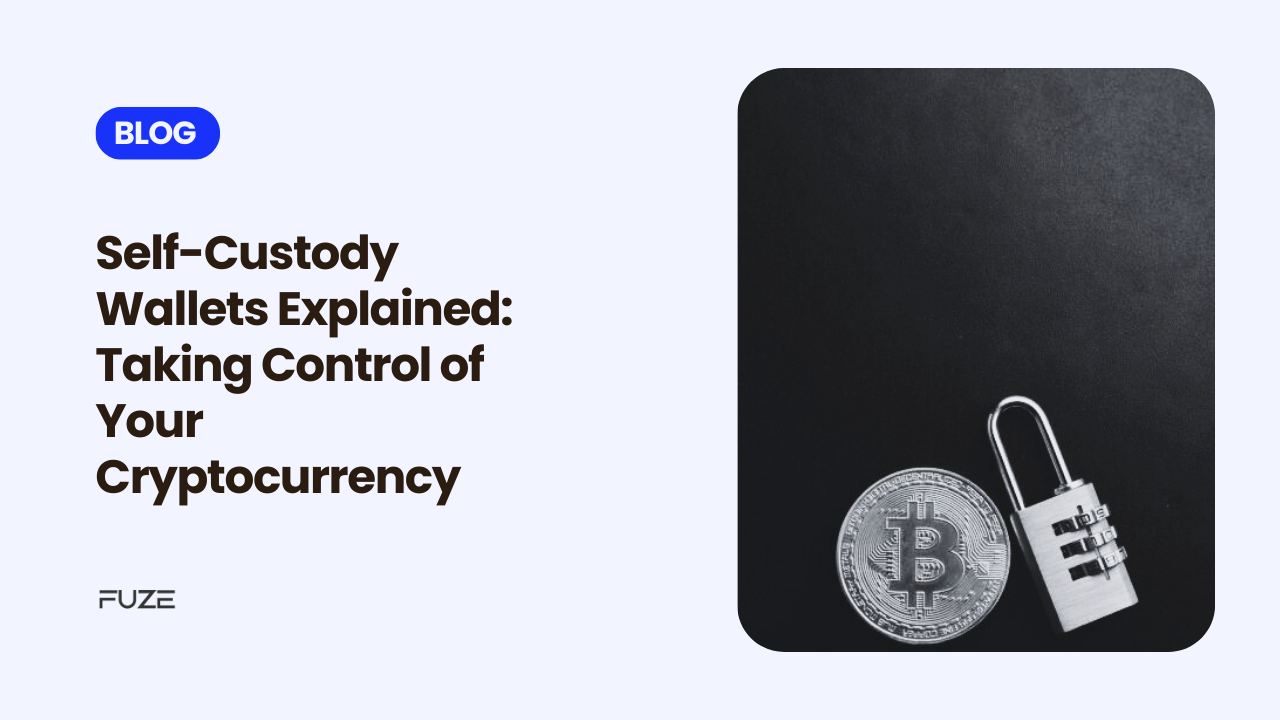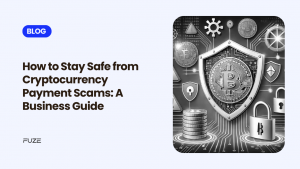The world of cryptocurrency offers incredible opportunities for financial independence, global transactions, and a decentralised economy. However, with these opportunities comes the responsibility to safeguard your digital assets. This is where self-custody wallets play a pivotal role.
In this blog, we’ll dive into the concept of self-custody wallets, their benefits, how they differ from custodial wallets, and why they are essential for anyone looking to take full control of their cryptocurrency.
What Is a Self-Custody Wallet?
As the name suggests, a self-custody wallet or a non-custodial wallet is the personal wallet of the user in which the user is the only person in control of the private keys and the digital assets that are contained in that wallet. Contrary to custodial wallets, which are held by a third party or intermediary, such as an exchange or payment processor, funds in a self-custody wallet do not require trust in any individual other than oneself.
How Do Self-Custody Wallets Work?
Cryptocurrencies such as Bitcoin and Ethereum function on blockchain technology, which employs cryptographic keys to secure transactions and verify asset ownership. These keys consist of:
Public Key: A cryptographic code that serves as your wallet’s address, which you can share to receive funds.
Private Key: A secure cryptographic code that provides access to your wallet and enables you to authorise transactions.
In a self-custody wallet, the private key is stored locally on your device instead of on a third-party server. This ensures that you, and only you, have access to your funds.
Types of Self-Custody Wallets
There are various types of self-custody wallets, each designed for specific purposes:
- Hot Wallets: These wallets are connected to the internet, making them ideal for regular transactions. Examples include mobile apps like Trust Wallet and MetaMask.
- Cold Wallets: These are offline wallets that provide greater security by being disconnected from the internet, making them perfect for long-term storage. Examples include hardware wallets like Ledger and Trezor, as well as paper wallets.
- Multi-signature Wallets (Multi-sig): These wallets require multiple private keys to approve a transaction, which adds an extra layer of security. They are commonly used by businesses or for shared ownership of funds.
Benefits of Self-Custody Wallets
- Full Control Over Your Assets: With a self-custody wallet, you have complete independence. You can send, receive, and store cryptocurrency freely, without any limitations.
- Enhanced Security: By managing your own private keys, you reduce the risk of losing your funds to a third-party hack. Cold wallets offer extra protection against online threats.
- Censorship Resistance: No central authority can freeze or limit your access to your funds, which is especially important in areas with unstable economies or strict capital controls.
- Privacy: Self-custody wallets don’t require you to provide personal information or go through KYC (Know Your Customer) processes, ensuring your identity remains protected.
Self-Custody Wallets vs. Custodial Wallets
| Control | Full control of private keys. | Private keys managed by a third party. |
| Security | Higher security if properly managed. | Vulnerable to hacks if a third-party is compromised. |
| Ease of Use | May require more technical knowledge. | More user-friendly for beginners. |
| Access | Completely decentralised and censorship-resistant. | Can be subject to restrictions or freezes. |
| Recovery Options | Recovery depends on the backup of your keys. | Easier recovery through customer support. |
Challenges of Using Self-Custody Wallets
While self-custody wallets provide unmatched control, they also bring certain responsibilities:
- Risk of Losing Private Keys: If you misplace your private key or recovery phrase, you will permanently lose access to your funds. This highlights the importance of secure storage and backups.
- Technical Complexity: For beginners, managing a self-custody wallet can seem overwhelming. Users need to familiarize themselves with security practices, such as steering clear of phishing scams.
- No Customer Support: In contrast to custodial wallets, there is no third party available to help recover lost funds.
Best Practices for Using Self-Custody Wallets
- Backup Your Wallet:
- Securely store your recovery phrase in multiple locations. Avoid digital backups like screenshots or cloud storage.
- Choose a Reputable Wallet:
- Use wallets from trusted providers with strong track records.
- Enable Security Features:
- Set up PINs, biometrics, or passwords where available.
- Use multi-signature wallets for additional protection.
- Be Cautious of Phishing Attacks:
- Verify URLs and emails carefully before entering your wallet information.
- Avoid clicking on unknown links or downloading unverified software.
- Consider Cold Storage for Long-Term Holdings:
- Use hardware wallets for assets you do not need to access frequently.
When Should You Use a Self-Custody Wallet?
Self-custody wallets are ideal for users who:
- Want full control and ownership of their cryptocurrency.
- Are concerned about the security risks of centralised exchanges.
- Intend to store large amounts of cryptocurrency long-term.
- Require privacy and censorship resistance.
However, if you are new to crypto and only plan to make occasional transactions, a custodial wallet might be a more user-friendly starting point.
Conclusion
Self-custody wallets are a cornerstone of cryptocurrency ownership, offering unparalleled control, security, and independence. While they require a greater level of responsibility and technical understanding, the benefits far outweigh the challenges for those serious about safeguarding their digital assets.
The saying “Not your keys, not your coins” highlights the significance of self-custody wallets. When you hand over your private keys to someone else, you’re also giving away your financial independence. History has demonstrated the dangers of centralised custody, with many well-known exchange hacks and bankruptcies resulting in the loss of billions in user funds.
Self-custody reflects the core principles of cryptocurrency: decentralisation, financial freedom, and empowerment. By managing your own assets, you make sure that no third party can mismanage, lose, or steal them.
As cryptocurrency adoption grows, self-custody wallets will remain a vital tool for those who value autonomy and security. By understanding how to use them effectively and adopting best practices, you can keep your assets safe in the evolving digital finance landscape.
Disclaimer: Virtual assets carry significant risks, including high volatility and potential loss of your entire investment. They are not backed by governmental protections, and recourse may be limited in case of loss. Always assess your risk tolerance, fully understand the risks, and seek independent financial advice if needed before investing.
Frequently Asked Questions
- Are self-custody wallets difficult to use for beginners?
While they require more responsibility, modern self-custody wallets are designed with user-friendly interfaces and guides to help beginners securely manage their funds. - What happens if I lose my private keys or seed phrase?
Losing your private keys or seed phrase means losing access to your funds permanently. It’s crucial to store your seed phrase securely and consider backup solutions. - Do self-custody wallets support multiple cryptocurrencies?
Yes, many self-custody wallets support multiple cryptocurrencies, allowing you to manage different digital assets within a single interface. - How can self-custody wallets protect against centralised platform attacks?
By bypassing centralised platforms entirely, self-custody wallets ensure that your assets are not exposed to platform-specific risks like hacking, mismanagement, or fraud. - Are hardware wallets considered self-custody wallets?
Yes, hardware wallets are a type of self-custody wallet. They store your private keys offline, providing an additional layer of security against online threats.







